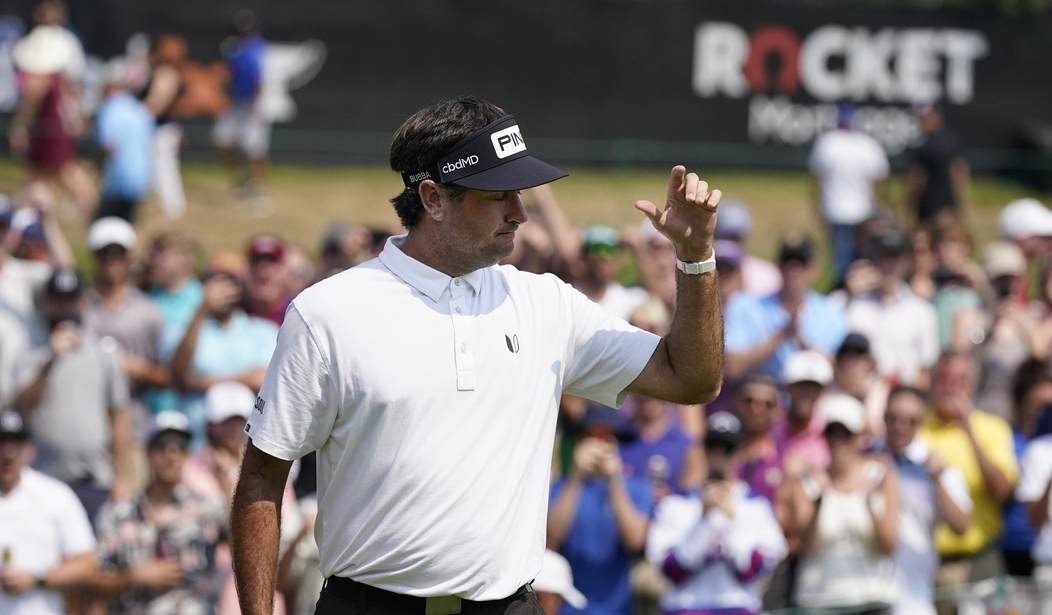Professional golfers competing for million-dollar prizes may not appear to be disadvantaged in the labor market, but they actually provide a good example of America’s deteriorating Gig Economy landscape nationwide. As independent contractors, not playing for a team or working for an employer, pro golfers are in a class with millions of hard-working folks who seriously lack rudimentary legal and ethical protections in their jobs.
Unlike their peers in baseball, football and basketball, PGA Tour golfers have to cover their own expenses, from travel to coaching to health services. Caddies alone can cost $3,000 per tournament, in addition to a percentage of the golfer's winnings. But worse, the PGA Tour restricts ways for players to earn extra money, including banning participation in competitor tournaments, appearance fees, and media and licensing income. At the same time, unlike pro sports leagues, the Tour does not even provide golfers with minimum compensation.
In order to play in the Asian Tour last month (February 3rd-6th), at the same time as a PGA Tour event in Pebble Beach, some of the biggest names in golf, including Dustin Johnson, Bryson DeChambeau, and Phil Mickelson, had to beg the Commissioner for a waiver. It was reluctantly granted, but only if the players guaranteed they would play in Pebble Beach in future years. What kind of independence is that?
Rory McIlroy, four-time champion in golf’s Majors and chairman of the PGA Tour Players Council, decided not to play in either event that weekend, but in an interview Jan. 26, he said of golfers who chose the Asian Tour event: “At the end of the day, it’s their job and livelihood…. I like being my own boss. I don’t want to be told what to do. I don’t want to be told where to show up or when to show up.”
Recommended
The good news is that protecting workers’ rights in a Gig Economy is an issue gaining traction in Washington. The Biden Administration supports the idea that tens of millions of workers should have the flexibility of independent contractor status and still be treated fairly, with and proper protections and benefits.
In its landmark ruling against the NCAA’s restrictions on the money-making activities of college athletes, the U.S. Supreme Court last June reportedly seemed to find that the NCAA provided no evidence in its filings to suggest that fans would be less interested in college sports if athletes receive greater benefits. Likewise, the PGA has scant evidence to suggest that pro golfers participating in supplemental competitions, or making money outside of the event, would negatively impact the PGA Tour.
As of 2019, there were 36 million U.S. workers subject to non-competes, denying them the right to sell their services to any organization they wish. Non-competes violate the spirit of the Gig Economy, harm wage growth, and even limit the ability of workers to leave and start their own business. Fans of the PGA Tour ideally want the best for the players, and the sport overall. It would be in the fans interest to grow the sport by supporting the end of the PGA Tour’s non-compete practices.
Last year, Sen. Chris Murphy (D-Conn.) led the charge against anti-competitive practices with an astute legislative proposal, the Workforce Mobility Act, which would limit non-competes to extraordinary cases and require employers to inform their employees explicitly of the limitations when a non-compete is allowed.
California has been a leader by largely prohibiting non-competes, and President Biden’s wide-ranging Executive Order last year encouraged the Federal Trade Commission (FTC) to restrict or ban such agreements, including the type the PGA Tour currently imposes.
It can be perfectly appropriate for employers to protect their trade secrets and intellectual property, but the idea that employers should be able to broadly limit an employee’s future employment options and earning potential is simply unfair and sounds like an unjust contract of adhesion.
This is a conversation across all industries. Thousands of lawsuits are pending that would extend the rights of Gig Economy workers, and the Administration recognizes that independent contractors lack equity in reasonably seeking earnings because the scales are tipped heavily in the favor of large employers and governing bodies.
If PGA Tour golfers lack the ability to seek their livelihoods freely and fairly, then imagine how little power lower-income independent contractors have to secure decent treatment and adequate compensation. Deliberate steps need to be taken now to truly protect Americans who want and need flexibility in the workplace. Yes, including professional golfers.

























Join the conversation as a VIP Member